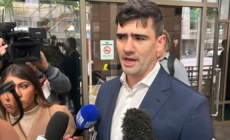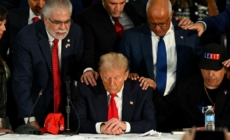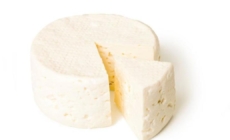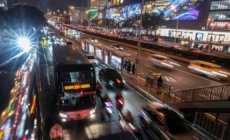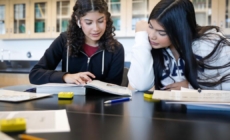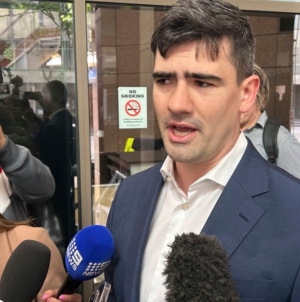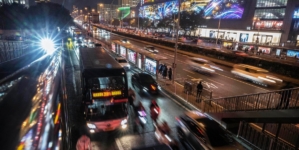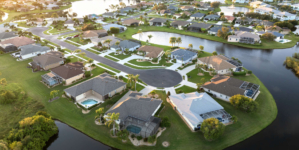-
Bears set to host Patriots, what happens if Drake Maye out plays Caleb Williams? | The Facility - 5 mins ago
-
First person in Australia to be jailed for Nazi salute is unrepentant - 9 mins ago
-
Who Will Be Donald Trump’s White House Press Secretary? Seven Contenders - 23 mins ago
-
Econverse V4 Budapest is Calling for Applications from Young Entrepreneurs - 27 mins ago
-
Why Latino men voted for Trump: ‘It’s the economy, stupid’ - 30 mins ago
-
Cheese sold at Aldi, Market Basket and more recalled due to listeria worries - 48 mins ago
-
2024 NFL midseason All-Pro team - 50 mins ago
-
China allocates billions to local governments to tackle hidden debt issues. - 58 mins ago
-
Woman Tries on Old Jeans After Losing 60 Pounds in Four Months - about 1 hour ago
-
How a Trump term could impact California’s LGBTQ+ students, financial aid - about 1 hour ago
I Was Pulled From the Rubble in Gaza. My Family Died There
My head throbs and my nose fills with the acrid scent of explosives. My lungs inhale the bitter dust of rubble as darkness engulfs me.
The last thing I remembered on October 10 was designing a pink poster for a breast cancer awareness campaign at my medical college, where I’m a third year student.
Suddenly, at approximately 4 p.m., the window started shaking and pink turned into blackness.
Alaa Zaher Ahmed/Ahmad Hasaballah/Getty Images
I didn’t yet understand that an Israeli warplane had bombed my home in Khan Yunis. All I knew was that my legs were pinned down, blood was running down my face, and there was barely enough oxygen to breathe.
I began shouting and pounding on chunks of concrete above me.
“I hear knocking!” a muffled voice called out. A small hole above me was cleared and hands pulled me up and out of the rubble. Bruised and scraped, with a gash on my head, but alive.
I spent the night in the hospital praying that my mom, sister Reem, brother Bilal, and Bilal’s three-year-old son Mohammed also survived.
Civil defense personnel came briefly, but rescue teams, equipment, and fuel were severely lacking, and there were also other victims trapped under other piles of rubble. Relatives desperately continued to dig in the debris with their bare hands.
And then, a glimmer of hope. Our relatives heard noise from deep under the rubble. Finally, at 5 a.m., they pulled out my 25-year-old sister, Reem, who was going in and out of consciousness.
After another four hours of digging, they uncovered the lifeless bodies of my mother, brother, and nephew.
Mama, who kissed me goodbye every morning as I left for university. Bilal, who helped me navigate the world. And little Mohammed, who loved going to preschool, and drew a picture that very morning he never had the chance to explain to us in his small, stammering voice.
And yet I remind myself: My family is lucky. So many families have been entirely wiped out. Others couldn’t rescue their relatives from the rubble.
In less than three weeks, thousands of Palestinians in Gaza have been killed by Israeli bombs, many of whom are children, according to the health ministry. Many more are presumed to be dead or trapped under rubble. Nearly half of the Gaza Strip’s homes are damaged or destroyed, the housing ministry said.
I watch and wait as the world fails, yet again, to intervene.
Why is no one putting an end to this ruthless assault? Why is the Biden Administration giving its backing to Israel’s brutal and blatant collective punishment of more than two million Palestinians trapped in Gaza, over half of them children?
I sleep for an hour before being startled awake, either by a flashback to the explosion or the all-too-real nightmare of nearby shelling. Israel cuts us off from food, electricity, and water.
A few days ago, under pressure from the international community, 20 trucks a day carrying humanitarian aid entered the besieged Gaza Strip; a tiny trickle of what’s urgently needed.
Our lives hang by a thread as Israel bombs us; the specter of death haunts us relentlessly.
Cell service and internet are all but severed. I finally manage to catch a bar of service and glimpse my class’s WhatsApp group, only to be confronted with the news of my classmate’s death, along with her family.
I send desperate “How are you?” messages to family and friends, relieved when someone replies they are “fine.” I understand that “fine” doesn’t mean they are safe and well, it simply means that they’re alive, at least for now.
I scroll through videos friends sent of Rimal Street, once vibrant with people and conversations, now lying in ashes. More grim news of losses streams in. My cousin’s son. My university professor and his family. Entire lineages–gone.
Israel’s military has struck health care facilities, ambulances, and United Nations schools. Patients, doctors, journalists, and students have all become fragments among the rubble.
We grew up together, and now we die together, over and over again.
After being pulled from the rubble, my sister Reem couldn’t speak for three days. It took her a week to walk; she still has a pronounced limp. Her arm is broken and burnt. She needs treatment but the hospitals are overwhelmed and can’t even attend to life-and-death cases.
Al-Shifa hospital, the largest in Gaza, has a capacity of 700 yet is treating 5,000 patients, says Médecins Sans Frontières, with a dire lack of electricity and medical supplies.
Even before October 7, hospitals in Gaza lacked basic supplies and medical equipment. Palestinians lived a life of deprivation and suffering due to 16 years of a suffocating Israeli siege and naval blockade that the UN and rights groups have condemned as illegal.
We have been traumatized by more than a half-century of brutal Israeli military occupation and repeated, devastating military assaults since 2008.
I help my sister Esraa, a doctor, treat patients in UN schools sheltering hundreds of thousands of displaced people. I want to bring healing to all who suffer.
But how will I continue my studies when Israel bombed my university and killed my professors? Where will I practice medicine if our hospitals are destroyed, doctors killed, and our medical system ruined?
If the world does not act soon, there will be nothing left of it. Indeed, there will be nothing left of Gaza.
Alaa Zaher Ahmed is a third-year medical student at the Islamic University in Gaza.
All views expressed in this article are the author’s own.
Do you have a unique experience or personal story to share? Email the My Turn team at myturn@newsweek.com.
Uncommon Knowledge
Newsweek is committed to challenging conventional wisdom and finding connections in the search for common ground.
Newsweek is committed to challenging conventional wisdom and finding connections in the search for common ground.
Source link

